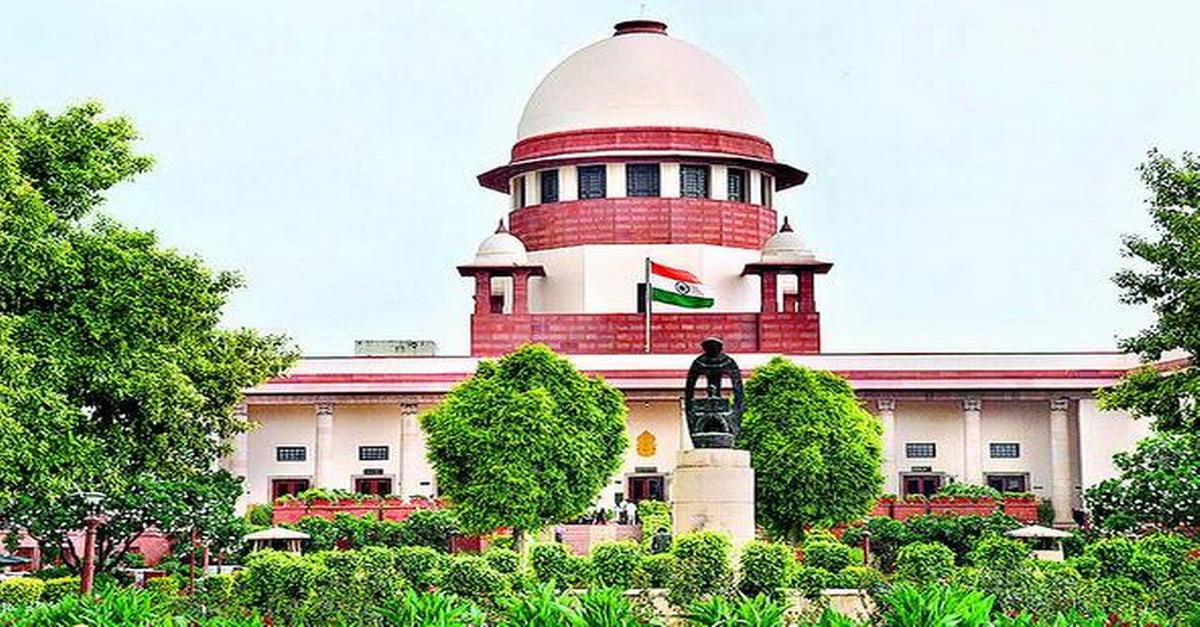CASE NAME- MAFABHAI MOTIBHAI SAGAR vs. STATE OF GUJARAT & ORS.
CASE NO.- CRIMINAL APPEAL NO.4307 OF 2024
DATE OF JUDGEMENT- 21st OCTOBER, 2024
CORAM- JUSTICE ABHAY S. OKA, JUSTICE AUGUSTINE GEORGE MASIH
FACTS OF THE CASE-
In February 2008, the appellant who was charged under Section 302 read along with Section 147 and 148 of the IPC was sentenced to life imprisonment for the crime committed. The continued prosecution of the appellant bears no doubt as to the final ruling which is at its case disposal. The appeal arose out of an order that was made by the Gujarat High Court in respect to an application that was presented to it by the appellant concerning the granting of parole. As that prayer was denied by the order appealed against, a further appeal was made to the Supreme Court. The appellant in this case was represented in court in respect of this appeal in June 2023 and it was submitted on his behalf that the application made by him under Section 432(2) of the CrPC concerning the application for remission was not considered by the state government.
ISSUE OF THE CASE-
- Whether this appeal is as regards the legality of the conditions imposed while remitting the life sentence of the appellant in the exercise of powers under subsection (1) of Section 432 of the Code of Criminal Procedure, 1973?
CONTENTIONS OF THE APPELLANT-
Mr Rauf Rahim, the learned senior counsel appearing for the appellant, has made submissions on the power of the State Government to impose conditions while granting remission. He submits that the impugned conditions defeat the very object of the grant of remission. He submitted that the word “decently” used in condition no.1 is vague. The concept of decency differs from person to person. Therefore, putting such a condition of maintaining decent behaviour is completely violative of Article 14 of the Constitution of India being manifestly arbitrary. It is submitted that putting such a condition confers arbitrary power on the State Government to cancel the remission order. Hence, the condition violates Article 21 of the Constitution of India.
Regarding condition no.2, the learned senior counsel submitted that even if a false allegation is made against the appellant of commission of any cognizable offence, he will be deprived of remission granted under the order dated 15th September 2023. The learned senior counsel relied upon a decision of this Court in the case of Shaikh Abdul Azees v. State of Karnataka. While dealing with subsection (3) of Section 401 of the Code of Criminal Procedure, 1898 which is pari materia with Section 432 of the CrPC, this Court held that on breach of any of the conditions on which remission is granted, there is no automatic revival of the sentence. He submitted that both conditions are completely illegal.
CONTENTIONS OF THE RESPONDENT-
Ms. Swati Ghildiyal, the learned counsel appearing for the 1st respondentState of Gujarat, submitted that under subsection (1) of Section 432 of the CrPC, the appropriate Government has the power to remit the whole or any part of the punishment subject to certain conditions. The provision requires the convict to accept the said conditions, without which he cannot be granted the benefit of remission. The learned counsel submitted that it is very well settled that a convict is not entitled to remission of the sentence as a matter of right. She submitted that the limited right of the convict is only to be considered for remission as held by this Court in the case of Union of India v. V. Sriharan alias Murugan & Ors. The learned counsel also relied upon a decision of this Court in the case of Epuru Sudhakar & Anr. v. Govt. of A.P. & Ors., which lays down that the power to remit sentence is a discretionary power which has to be exercised on public interest considerations. The learned counsel submitted that the appellant has accepted the conditions imposed on him and has furnished surety in terms of condition no.1. Hence, no interference is called for.
CONCLUSION/ANALYSIS-
The bench observed that such a condition was liable to be struck down for being too subjective and manifestly arbitrary. The Court explained that the concept of decency keeps changing from time to time and is undefined in penal or procedural law. Therefore, imposing such a condition for the grant of remission left room for the cancellation of remission at the whims and fancies of the executive, the Court said.
The Court added that remission conditions that are arbitrary or violate fundamental rights would stand vitiated. It, therefore, quashed this remission condition. The second condition set by the State was that the convict cannot engage in any cognisable crime or do any act that hurts people or property.
The Supreme Court did not set aside this second condition, but clarified that mere allegations that the convict breached this condition should not be taken at face value to lead to the cancellation of his remission. The Court explained that the principles of natural justice have to be followed and a convict must be heard and allowed to respond before take such a drastic step.
The Court added that a minor breach of remission conditions cannot be grounds to cancel remission. The Court proceeded to partly allow the appeal after recording these clarifications.
“PRIME LEGAL is a full-service law firm that has won a National Award and has more than 20 years of experience in an array of sectors and practice areas. Prime legal fall into a category of best law firm, best lawyer, best family lawyer, best divorce lawyer, best divorce law firm, best criminal lawyer, best criminal law firm, best consumer lawyer, best civil lawyer.”
Written by- ALOK G. CHHAPARWAL


